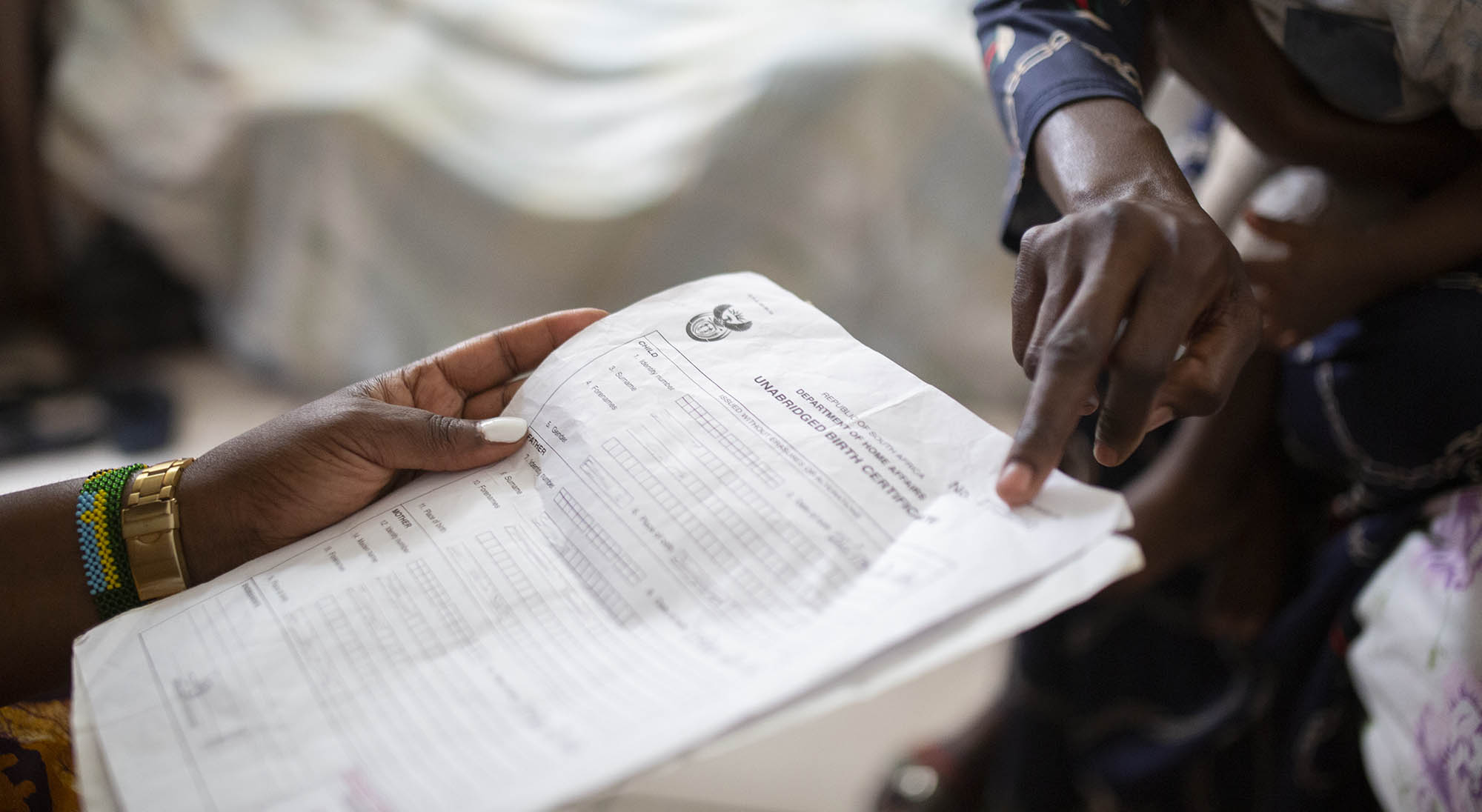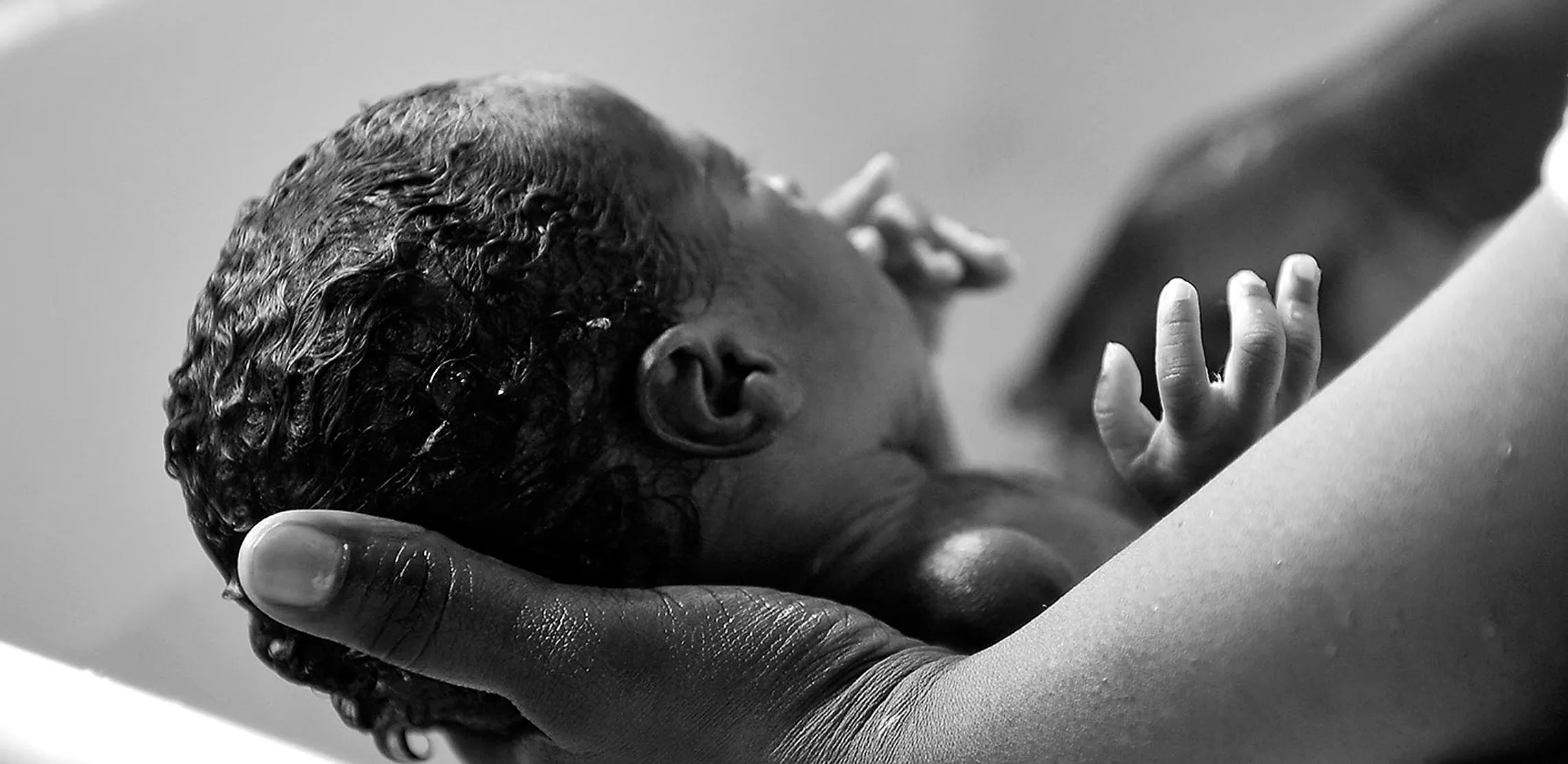In the heart of South Africa, far from the cosmopolitan cityscapes, lies an unsettling truth that belies the vibrancy of its landscapes. As of 2021, Lawyers for Human Rights’ statelessness project had received more than 2,000 queries about birth registration in the past five years.
The recurring theme? A severe lack of birth registration among those living in remote border regions, areas marked by extreme levels of poverty and limited access to essential government services.
Census data from 2001 and 2011 show that the crisis is not gender-neutral. Women, who comprise 55% of the residents in these areas, are the face of this silent pandemic of statelessness, with black Africans making up 32.2% of this demographic.
As we commemorate Women’s Day, we must confront and address why women in these communities continue to bear the brunt of this existential crisis.
South Africa continues to grapple with socioeconomic disparities, unequal access to resources and opportunities, racial, class and gender-based inequality, and the remnants of apartheid’s legacy.
These factors have contributed to the realities of women like Mpho Modise, an orphan from a small farming town in North West, Phindile Mabuza, a mother of six from Mpumalanga, South African-born Elizabeth and Nephtalie, and abandoned girls including an 18-month-old child we represented, who due to state inaction found themselves stateless in South Africa.
Individuals in remote areas face a host of barriers in accessing critical services, in a country where birth registration is not only crucial to access nationality, but also facilitates the issuing of a birth certificate and a South African identity document. They are further marginalised by a birth registration system that fails to recognise the nuances of unregistered births and the need for the due consideration of late registrations for adults.
 A woman points out one of her children's recognition of birth certificates while holding her baby in Durban, KwaZulu-Natal. (Photo: Leila Dougan / Daily Maverick)
A woman points out one of her children's recognition of birth certificates while holding her baby in Durban, KwaZulu-Natal. (Photo: Leila Dougan / Daily Maverick)
The Department of Home Affairs continues to relentlessly challenge individuals’ rights to nationality through litigation, which reflects the state’s lack of political will to align its actions with the global goal to end statelessness by 2024, as well as its failure to give effect to the Universal Declaration of Human Rights’ Article 15 and its very own Constitution and legislative provisions which were enacted to safeguard against the arbitrary deprivation of nationality.
The African Committee of Experts on the Rights and Welfare of the Child noted that “the right to birth registration is one of the rights that consistently appears not to be fully implemented by States parties”. Various scholars have also sounded the alarm about an increase in cases of statelessness in South Africa.
Children abandoned at birth and residents of remote, isolated communities, predominantly comprising black women, face significant challenges in obtaining documentation and registering their births, which puts them and their children at risk of a stateless existence.
Disadvantaged by the system: where you were born matters
The circumstances of our birth are beyond our control, but they hold significant importance, particularly in a country as unequal as South Africa, where your birthplace can shape the course of your entire life.
Unicef’s State of the World’s Children report for 2010 to 2018 found that in many sub-Saharan African countries rural birth registration for children is under 50%.
Often with no indication of who the parents are, children in this position are deprived of their constitutional right to a name and a nationality because of the absence of proof of birth.
This discrepancy becomes strikingly apparent when we contrast being born in affluent Sandton with being born just across the M1 highway in Alexandra.
The enduring legacy of apartheid’s unjust spatial laws has led to the deliberate and continued disconnection of many black communities from essential social services. With it also came the denationalisation of black people, stripping many of their citizenship rights. To date, many public officials fail to understand this aftermath leaving thousands of families without reprieve.
In the same vein, Lawyers for Human Rights has helped a growing number of orphaned or abandoned children. Often with no indication of who the parents are, children in this position are deprived of their constitutional right to a name and a nationality because of the absence of proof of birth. It was only in 2019 that the Department of Home Affairs overturned its unjust policy which placed a limit on how many births could be registered by social workers per month.
Read more in Daily Maverick: No country, no future: The bleak plight of stateless children in South Africa
Recently, we extended our support to Nompumlelo, an orphaned child who was sadly tasked by Home Affairs to trace her own paternal lineage as a prerequisite for receiving the department’s assistance. This unsettling case underscores the persistent problem, with the department continually exhibiting an alarming lack of compassion for those at risk of statelessness. Adding to this bleak scenario, a study by the Scalabrini Centre of Cape Town found that in Limpopo a staggering 82% of surveyed children in foster care remained undocumented.
Access to administrative justice remains a privilege accessible primarily to the affluent, perpetuating the unfortunate reality that marginalised communities, particularly impoverished and black individuals, endure the indignity of systemic failures.
Anti-migrant sentiment distracts from the increasing number of South Africans at risk of statelessness
South Africa does not have a dedicated mechanism to capture data on statelessness and therefore persistent claims on social media that there are 15 million undocumented and stateless foreigners in the country are untrue and cannot be substantiated.
Lawyers for Human Rights has assisted persons of mixed-nationality parentage as well as South African-born adults whose births had simply never been registered or who had difficulties in retaining identity documents often due to displacement. These people have not always been migrants.
The rising trend of using migrants as convenient scapegoats is becoming increasingly prevalent across the globe, with politicians resorting to this tactic to shift responsibility for a country’s social and economic challenges. By targeting migrants, they attempt to divert attention from the real issues plaguing society and absolve themselves of any accountability.
However, when xenophobic rhetoric is mirrored in public officials who engage with vulnerable groups, more people are at risk of statelessness. Disturbingly, we have seen cases where public health officials have refused to register the births of children born to migrant mothers, even where the fathers are South African citizens. This concerning trend perpetuates statelessness through generations, leaving South African children at risk of being deprived of their rightful citizenship.
Statelessness is a haunting reminder of the legacy of apartheid
In addition to the barriers in accessing education, healthcare, employment and social services, stateless persons are extremely vulnerable to arbitrary and lengthy immigration detention when they cannot prove their identity through documentation.
Read more in Daily Maverick: High court orders Department of Home Affairs to register birth of stateless man after 10-year battle
The haunting spectre of statelessness, predominantly affecting women in rural communities of South Africa, is a stark reminder of the legacy of apartheid and the persisting socioeconomic disparities in our country. As we commemorate Women’s Day, it is time to move beyond merely acknowledging this systemic failure, and take tangible, proactive measures to address the crisis. DM
Sharon Ekambaram is the head of Lawyers for Human Rights’ Refugee and Migrant Rights Programme. Geruza Nzongo Bumba is a legal researcher at LHR. Lindokuhle Mdabe is a senior attorney who is the manager of the LHR walk-in Law Clinic in Johannesburg.
LHR is an independent human rights organisation that employs a holistic approach to social justice and human rights enforcement in South Africa through strategic litigation, advocacy, law reform, human rights education and community mobilisation and support. LHR operates the largest refugee and migrant rights programme in the country, with legal clinics in Pretoria, Durban and Johannesburg, as well as specialised units on statelessness and detention monitoring.




 A woman points out one of her children's recognition of birth certificates while holding her baby in Durban, KwaZulu-Natal. (Photo: Leila Dougan / Daily Maverick)
A woman points out one of her children's recognition of birth certificates while holding her baby in Durban, KwaZulu-Natal. (Photo: Leila Dougan / Daily Maverick)